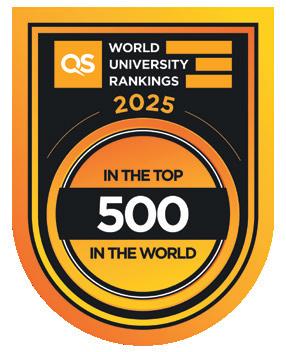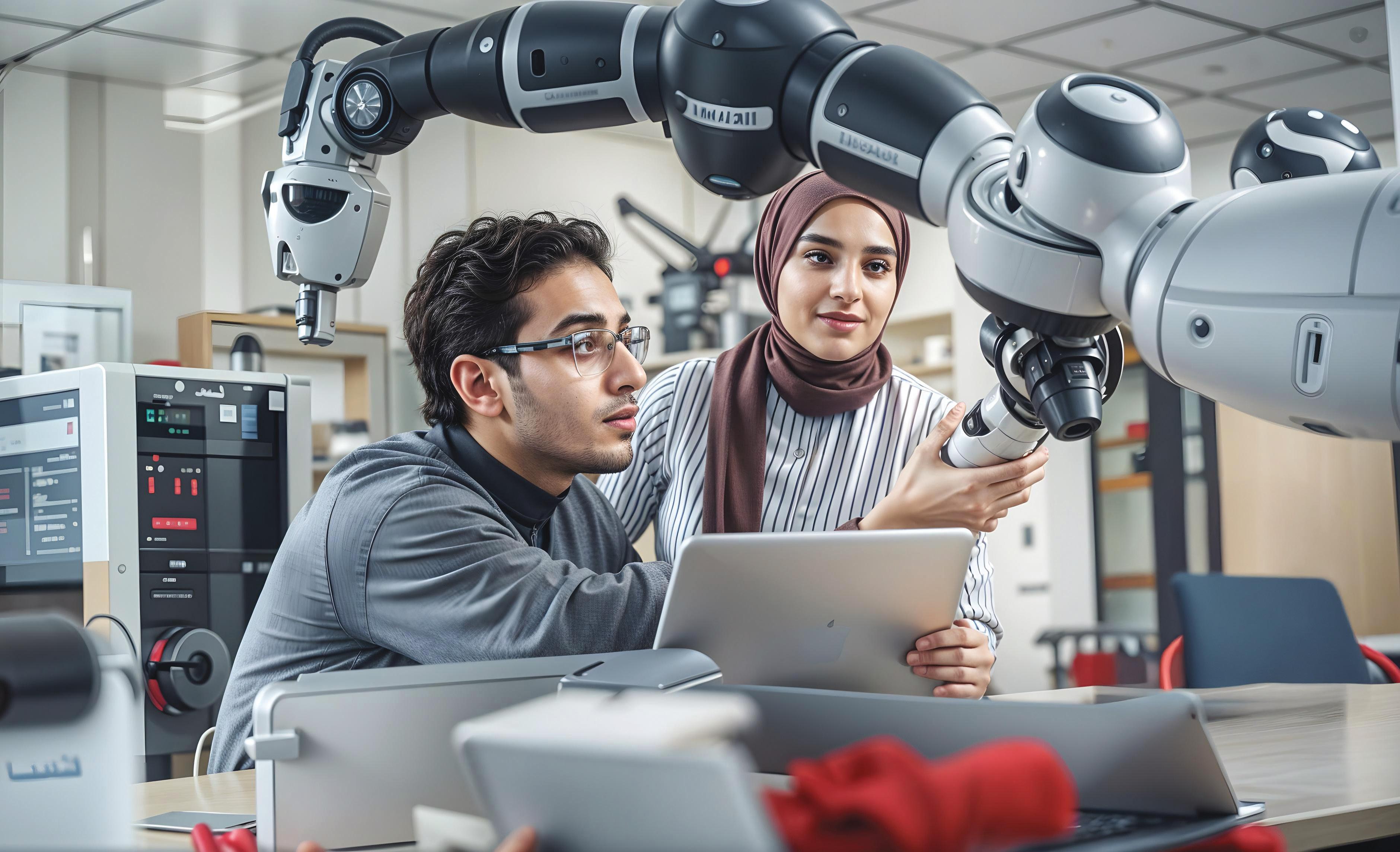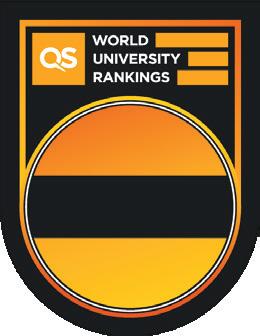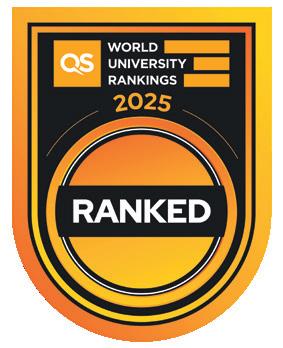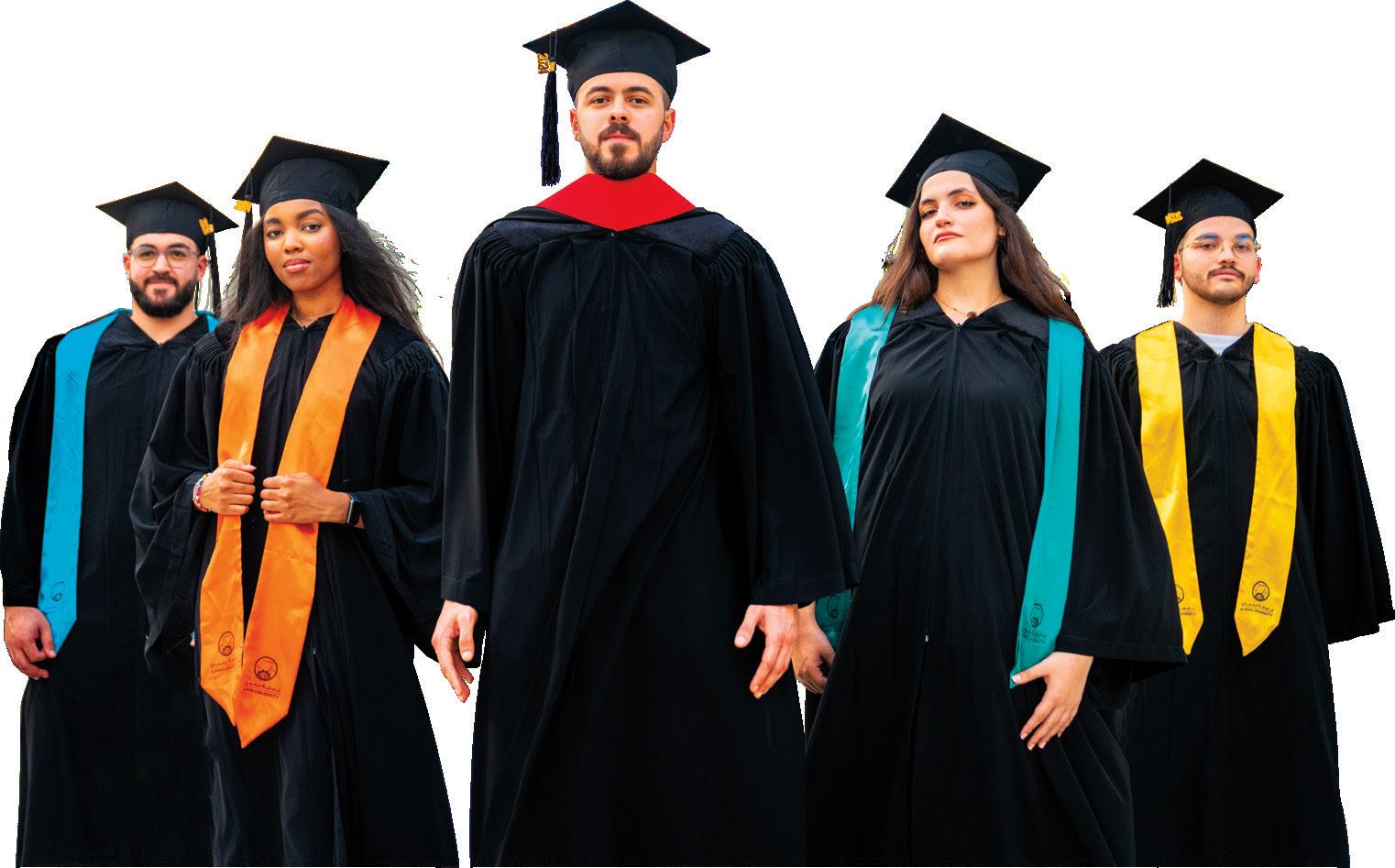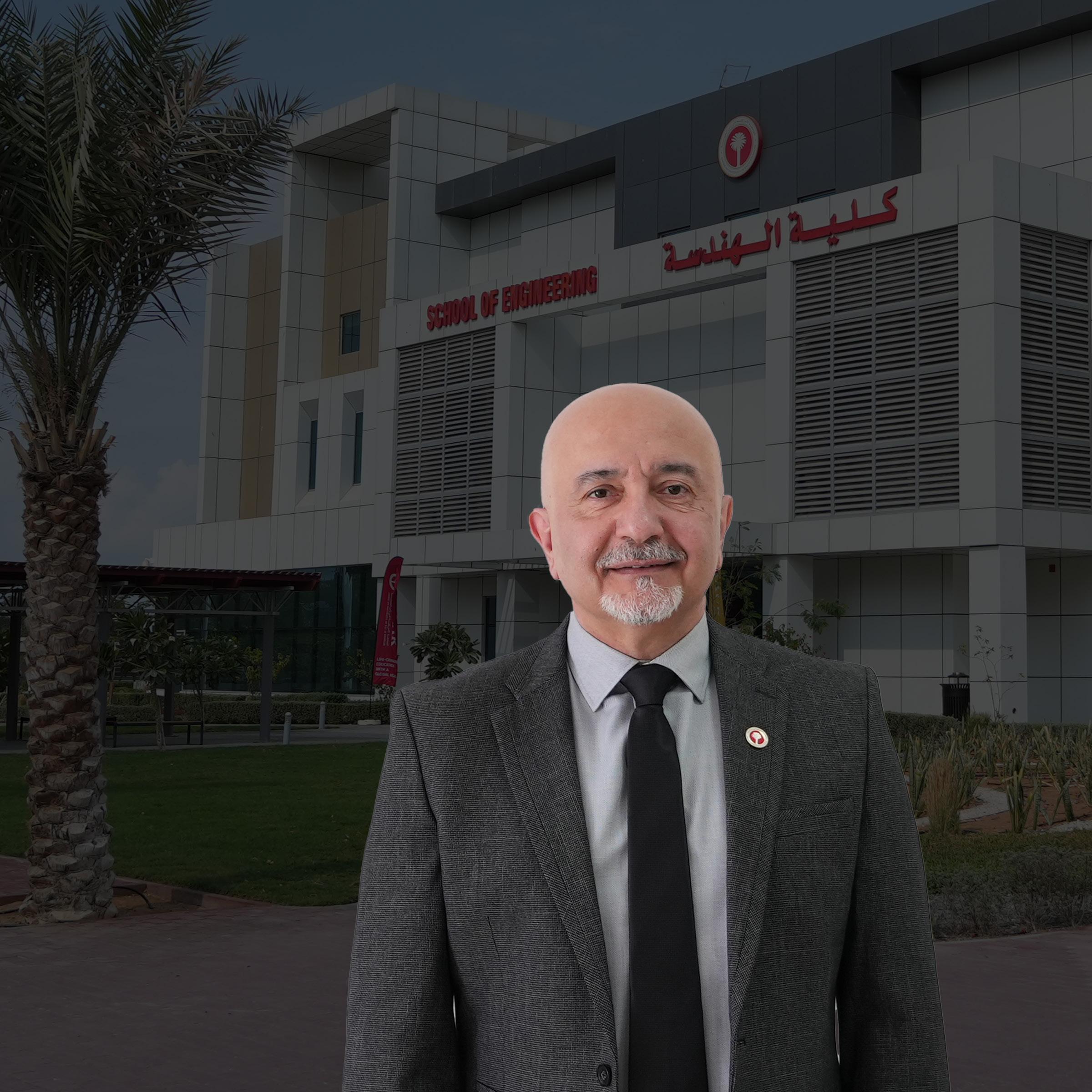
9 minute read
Embracing AI-driven Solutions at the American University of Ras Al Khaimah (AURAK):
An Interview with Professor Khalid Hussain, Dean of Engineering and Computing
Professor Khalid, it is truly a joy to welcome you into UniNewsletter’s esteemed cohort of featured higher education leaders. We are excited to hear your exclusive takes on what promises to be an impactful special issue on Engineering and Generative AI. Could you start by sharing with our readers your journey as an academic and leader? Specifically how your experiences culminated in joining AURAK as the Dean of the School of Engineering and Computing.
My journey in academia spans over three decades, during which time I have had the privilege of holding progressively more responsible leadership positions at various higher education institutions. Throughout my career, I have served in a variety of roles including Dean, Head of School, Associate Dean and Head of Department allowing me to develop a comprehensive understanding of both academic leadership and the intricacies of institutional growth.
Before embarking on my academic career, I worked as an automotive refinement project engineer at the Motor Industry Research Association (MIRA) in the United Kingdom, which provided me with invaluable industry insights that have influenced my academic work. I began my academic journey at the University of Bradford in the UK in 1994, where I spent over 20 years contributing to both teaching and research in engineering, eventually serving as the Dean of the School of Engineering for three years.
In 2016, I transitioned to the University of Wollongong in Dubai (UOWD) as Dean of Engineering and Information Sciences, a position I held until 2022.
My move to AURAK to become the Dean of the School of Engineering and Computing (SOEC) was motivated by my passion for —advancing engineering and
Professor Khalid Hussain Dean of Engineering and Computing
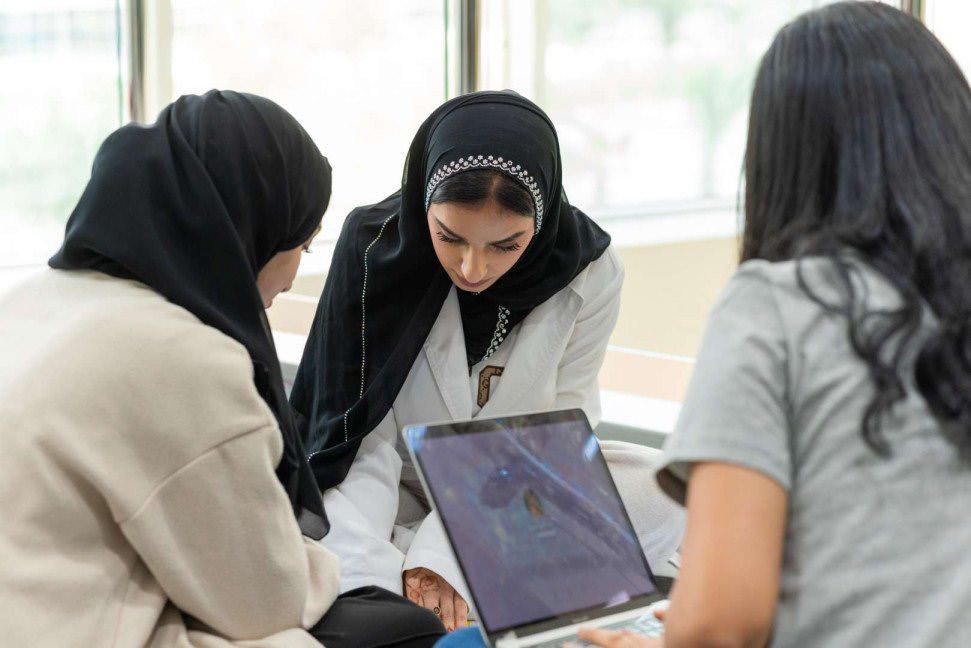
computing education, promoting innovation and enhancing student outcomes. In this role, I have had the privilege of applying my extensive academic leadership experience to guide the university through a period of significant growth and increased visibility with an emphasis on global competitiveness and social impact.
AURAK is known for its commitment to advancing education in engineering. How do you see
Generative AI aligning with the university's broader goals for innovation and academic excellence?
At AURAK, we recognize that engineering and computing are central to addressing some of society’s most pressing challenges such as climate change, sustainability, energy scarcity, security, population growth, population aging and the growing concerns surrounding food and water shortages. Engineers are at the forefront of finding innovative solutions to these global issues and we are committed to equipping our students with the knowledge and skills necessary to meaningfully contribute to these efforts. Our engineering programs are designed to emphasize key areas that align with these global challenges including design, innovation, sustainability, smart technologies, smart cities, renewable energy and more recently artificial intelligence.

Generative AI represents the cutting edge of technological innovation and its integration into our engineering and computing curricula aligns seamlessly with AURAK’s broader vision of academic excellence and innovation. The university has long been committed to fostering an environment that encourages forward-thinking, research-driven learning and the development of graduates who are not only experts in their fields but also adaptable to the rapidly evolving demands of modern industries. We are not simply teaching our students the latest technological tools—we are fostering a culture of creativity, critical thinking and innovation, which are essential qualities for success in today’s rapidly evolving engineering landscape.
Ultimately, Generative AI complements AURAK’s mission to cultivate the next generation of engineers and technologists who are capable of leading transformative change both regionally and globally by developing groundbreaking solutions to the world’s most pressing issues.
As this issue outlines, Generative AI is revolutionizing engineering workflows from simulation to optimization. How is AURAK preparing students to embrace these AI-driven changes in their future careers?
AURAK has been at the forefront of AI education in the UAE, proudly becoming the first institution in the country to offer a comprehensive bachelor’s program in AI. As a result of the program’s success and overall demand, we have also recently introduced an AI minor that is available to all engineering students, and we also are expanding our postgraduate offerings to include a master’s program in AI and Data Science. These initiatives reflect our commitment to ensuring that students from diverse engineering disciplines are equipped with the foundational knowledge and skills in AI that will be essential for their future careers.
We are preparing students to embrace the AI-driven transformations in the engineering sector by embedding AI tech- nologies throughout our engineering and computer science curricula. We offer a range of specialized courses that focus on AI, machine learning and data analytics with a strong emphasis on their practical applications within engineering contexts. These courses and their use of cutting-edge tools such as AI-driven simulation state-of-the-art labs, optimization algorithms and predictive analytics models are designed not just to provide theoretical knowledge, but to equip students with the technical skills needed to apply AI solutions to real-world engineering challenges.
And what opportunities and challenges do you see in integrating Generative AI tools into engineering curricula, particularly in terms of ethical considerations, collaboration and skill-building?
Integrating Generative AI tools into engineering curricula offers a wealth of opportunities for students to engage with one of the most transformative technologies of our time. These tools enable students to innovate, optimize designs and simulate solutions to complex engineering challenges in ways that were once unimaginable. For example, AI-driven design tools allow students to explore countless design iterations rapidly while AI-powered simulation platforms enable them to predict the behavior of materials and structures under various conditions, all of which significantly enhance both learning and problem-solving capabilities.
However, as you mentioned, the integration of these technologies also presents challenges. The rapid development and deployment of AI raises concerns related to data privacy, algorithmic bias and the broader social impacts of automation particu- mous vehicle design into our engineering curricula. We encourage our students to critically evaluate the potential consequences of AI deployment and foster a mindset of responsibility and accountability. always remain fundamental, future engineers will increasingly need to be adept at integrating AI and data science into their work to deliver innovative solutions. This includes leveraging AI technologies to optimize engineering processes, design more efficient and sustainable systems and address complex interdisciplinary problems that
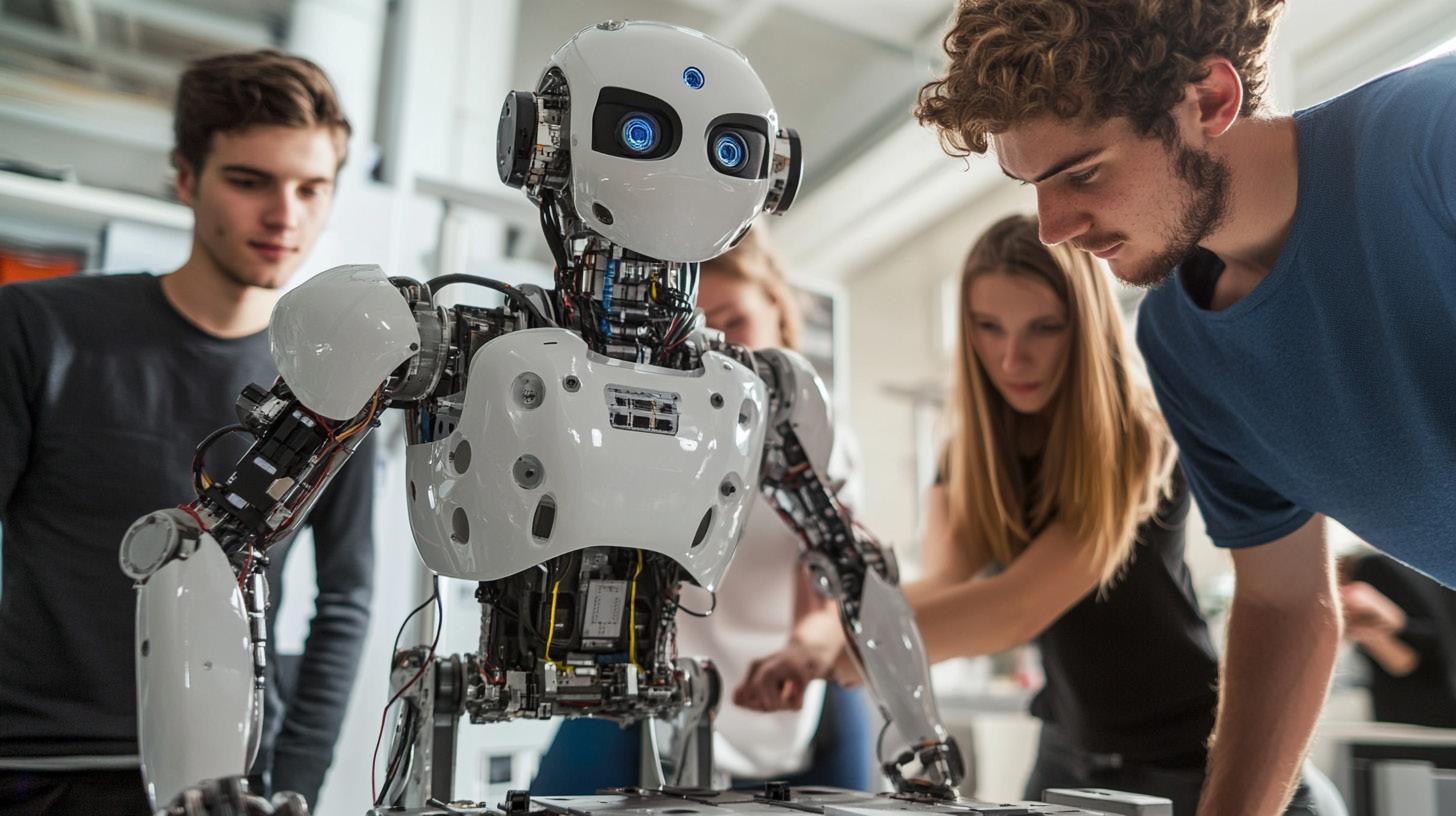
Aside from our core engineering curricula, we partner with leadopportunities they will encounter in the workforce.
In your opinion, how will the growing presence of AI in engineering industries impact the core skill sets required of future engineers? What should students be focusing on now to remain competitive?

In addition to technical skills, the future of engineering will place a greater emphasis on soft skills such as critical thinking, creativity and the ability to collaborate within multidisciplinary teams. As AI continues to evolve, engineers will increasingly work alongside professionals from diverse fields such as computer scientists, business analysts and
As Dean of Engineering and Computing, how do you balance embracing cutting-edge technologies with maintaining the foundational engineering principles and skills that remain critical?
At AURAK, we believe that a strong understanding of fundamental engineering principles is the bed- rock upon which advanced technologies such as AI must be built. Therefore, we ensure that our students master the core concepts of engineering before they move on to more specialized areas like AI and data analytics. For example, in our mechanical engineering program, students are first taught the fundamental principles of mechanics and thermodynamics, which are critical to understanding how systems behave, and are then introduced to more advanced topics like AI-driven design optimization and machine learning algorithms for predictive maintenance. This ensures that students not only know how to use cutting-edge tools, but also understand the underlying principles that govern their application.
In addition to technical proficiency, we emphasize the importance of core engineering competencies that transcend specific technologies. For instance, systems thinking, the design process and the scientific method are key pillars of our curriculum.
Ultimately, our goal is to ensure that students are adaptable, critical thinkers who can apply both traditional and advanced engineering tools in real-world scenarios. By grounding students in core engineering principles while simultaneously exposing them to the latest technologies, we are preparing them to be leaders who can drive innovation in the ever-changing engineering landscape.
Looking ahead, in excess of Generative AI, what do you see as the next frontier for engineering education and research? Are there specific trends that excite you?
I believe there are several exciting frontiers in engineering and computer science education and research that are poised to shape the future of the field. One of the most compelling areas is sustain-
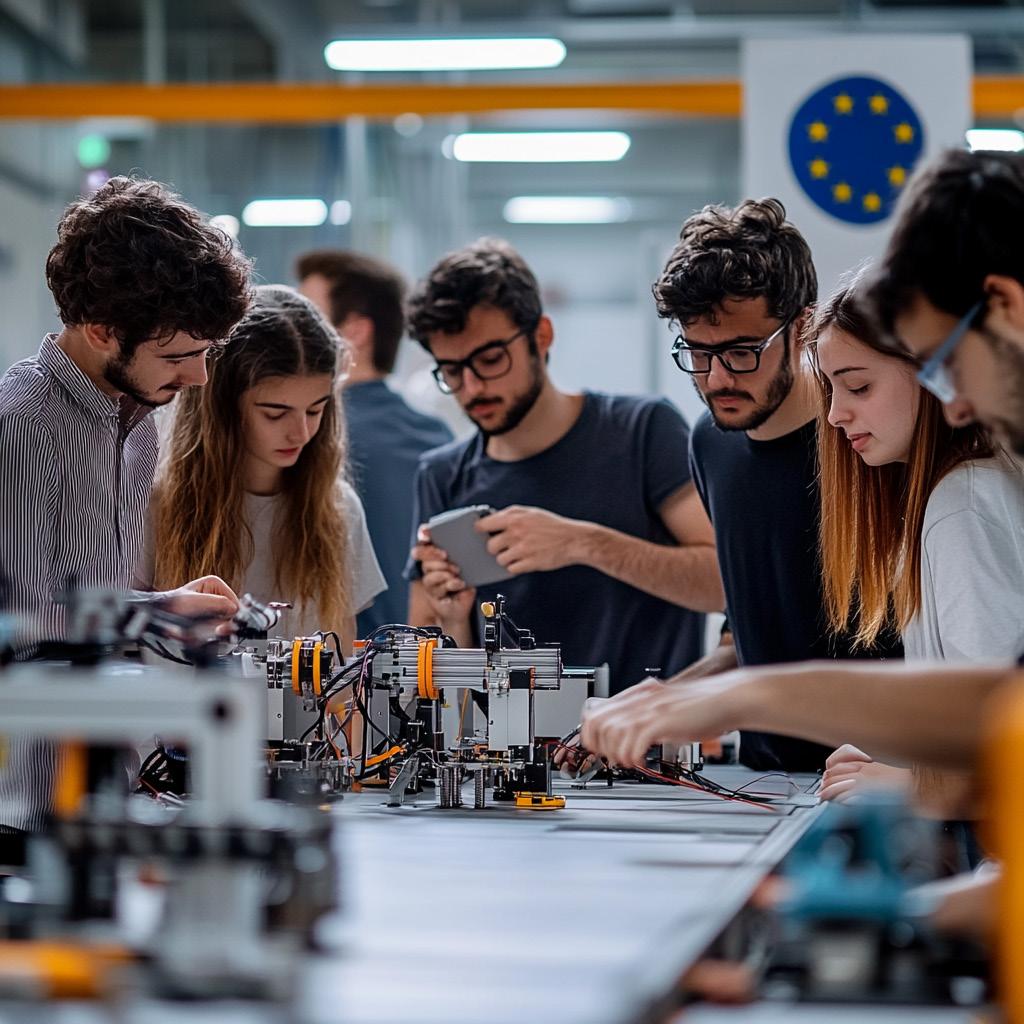
Another rapidly growing area that excites me is the development of smart systems, particularly in the context of smart cities, the Internet of Things (IoT) and robotics. We offer specialized courses and projects in these areas which enable our students to contribute to the digital transformation of society. Lastly, I am particularly excited about the growing impact of biomedical engineering, an area that will revolutionize healthcare and medical technologies. With advancements in areas such as medical robotics, personalized medicine and bioinformatics, biomedical engineers will be instrumental in shaping the future of healthcare.
Thank you for all of your thoughts, Professor Khalid. In closing, what overall exciting prospects are on the horizon for the School of Engineering at AURAK? What can current and prospective students look forward to?

I am thrilled about the promise of the future, and I’m confident in the range of exciting initiatives, which will significantly enhance both the academic experience and the career prospects of our students, on our horizon. The School of Engineering and Computing is committed to expanding our research centers to focus on cutting-edge fields such as AI, smart systems and sustainable energy, as well as intensifying our efforts to strengthen industry collaboration.
To further bolster employability, we are constantly evolving our academic offerings to stay aligned with industry needs and are also focusing on fostering strong alumni engagement which plays a crucial role in the success of our students via mentorship, career guidance and job placement opportunities. As we continue to grow and evolve, students at AURAK can look forward to a vibrant academic community that is dedicated to innovation, collaboration and career readiness.
